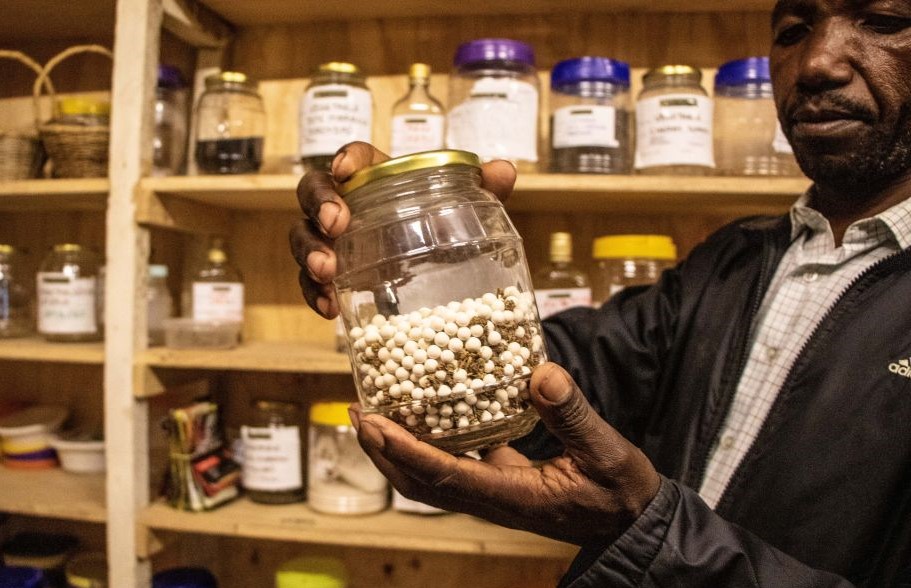In the face of worsening droughts and unpredictable weather brought on by climate change, farmers across Kenya are returning to their roots, literally, by embracing indigenous seed varieties to secure food for their families.
In Kamathatha village, nestled in Central Kenya, Martha Njenga is leading a quiet revolution. The farmer-turned-seed-advocate is teaching her fellow villagers traditional seed preservation methods, empowering them to save and replant seeds season after season.
“We’re preserving maize seeds now, but it goes beyond that,” Njenga said. “The community seed bank is helping farmers access seeds at the right time. Even during dry spells, if crops fail, they can return, pick seeds, and replant. It saves time and money.”
The idea is simple: by building their own seed bank, local farmers store and share seeds suited to their environment — a grassroots solution that gives them autonomy and resilience.
A few years ago, farmer Martha Wangui struggled to put food on the table. Repeated crop failures due to erratic weather made farming a gamble. Then she switched to indigenous seeds.
“Before, we depended on one crop — maize or beans — which we harvested only once a year,” she says. “But with indigenous varieties like arrowroots, we can harvest all year round.”
Wangui’s story reflects a wider trend. With commercial seed prices rising and their performance often unpredictable, more farmers are opting for traditional seed varieties, better adapted to local conditions and often more diverse in what they yield.
Recognizing this shift, the Kenyan government is promoting innovations in agriculture through awareness campaigns, aiming to bridge tradition and technology. At a recent event, research institutes and agricultural organizations showcased climate-smart solutions — from improved seed varieties to digital tools for farmers.
Dr. Robert Musyoki, a senior researcher at the Kenya Agricultural and Livestock Research Organization (KALRO), said that while indigenous seeds offer promise, ensuring their quality is key.
“As scientists, we’re working to improve indigenous crops and bring them to market in a certified manner,” says Musyoki. “This guarantees quality and reliability under different ecological conditions.”
Since 2012, the sale of uncertified seeds has been banned under Kenyan law — a move aimed at protecting farmers from fake seed dealers and boosting yields. But that hasn’t stopped farmers from organizing their own informal seed exchanges, keeping traditional farming knowledge alive.
Daniel Wanjama, founder of the Seed Savers Network, emphasized how critical these exchanges are:
“Eighty percent of the seeds used to grow our food come from farmers themselves,” he said. “If we depended entirely on commercial systems, we’d lose our capacity to produce most of our food.”
(Reuters)














